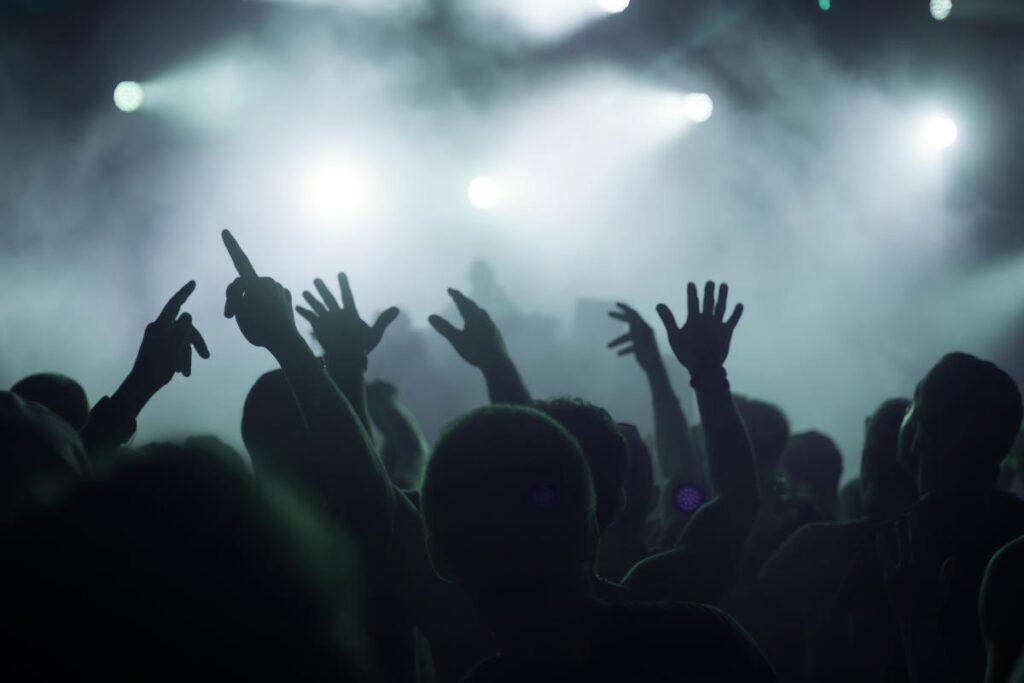Rave parties are known for loud, thumping music, vibrant light shows, and the eccentric costumes they inspire. However, there’s another side to rave parties that can have catastrophic effects on concert-goers: illicit drugs. If you’re planning on attending a rave party, know the lingo, behaviors, and hazards to watch out for.
Recovering addicts may not be advised to attend raves, given how pervasive drug distribution can be. In cases where you or someone you know has struggled with drug abuse in the past, consider the risks and make the most informed decision possible. Whether you’re currently struggling with drug addiction, or have in the past, get guidance at Promises Behavioral Health. Contact us at 844.875.5609 today to learn how to maintain safety at rave parties, get professional advice, or learn about our substance abuse treatment center.
Rave Party Precautions: Secret Phrases
To avoid detection from authorities, people who are looking for or selling drugs at rave parties use special phrases to refer to different substances. For example, someone may come up to you at a rave party and ask, “Have you seen Molly?” Odds are, they’re not looking for anyone named Molly. In actuality, they’re asking you if you can hook them up with MDMA—which often goes by the nickname “Molly.” MDMA, better known as ecstasy, is a popular club and rave drug. Ecstasy and other hallucinogens are popular at rave parties because they amplify the powerful music and vivid lights often found at raves.
Even rave-goers who are intent on avoiding drugs may find themselves at an increased risk. Some gestures that can seem totally innocuous and maybe even kind might be concealing their true nature. If anyone asks you if you would like some “Molly water,” if you would like to “roll,” or if you want some “candy,” they are actually asking you if you want drugs. Popular rave drugs and their slang terms include:
- MDMA, also known as ecstasy, vitamin E, skittles, and molly
- LSD, also known as acid, rainbow, red lips, smiley, sugar, and zen
- Cocaine, also known as yay, blow, white powder, rock, sniff, and snow
- Marijuana, also known as grass, weed, reefer, Mary Jane, Kush, or hemp
Stay Aware of Your Surroundings
In cases where a stranger offers a rave drug, knowing your way around the terminology used can mitigate any risk of accidental drug intake. The same cannot be said for laced or spiked beverages, which are deliberately discreet and considerably more dangerous. Consider the environment of a rave: it’s easy to get distracted or separated from your friends, with loud music, disorienting lights, and large crowds of people. That’s why it’s crucial that you are always aware of your surroundings and never leave any of your belongings or drinks unattended.
Drink spiking occurs when someone has slipped a drug into another person’s drink without the person’s knowledge or permission. While some people will spike others’ drinks “just for fun,” other people have more malicious intentions. In fact, some people will spike another person’s drink in order to incapacitate them and take advantage of them, rob them or commit a sexual assault. The best way to prevent your drink from being spiked is always to keep your drink on hand. If you have a bottle of water or soda, keep the lid on it whenever you’re not taking a sip. If you have an open cup, hold your cup close to your body or rest your hand on top of it. If you ever leave your drink unattended, it’s best to get a new beverage.
Signs of Drug Use at a Rave
It is widely known that drug use is common at raves. Drugs like MDMA, LSD, and marijuana are the most common rave drugs and typically cause users to feel mellow and friendly. However, everyone reacts differently to drugs, and other drugs like cocaine can cause aggressive behavior. Common signs of drug use at rave parties include:
- Dilated pupils
- Restlessness
- Impulsiveness
- Excessive thirst
- Sweating
- Chills
- Jaw clenching or teeth grinding
- Irregular heartbeat
- Blurry vision
- Faintness
- Panic attacks
- Aggression
- Loss of consciousness
- Seizures
If you believe someone may be suffering from adverse effects of drug use or if it appears that someone you know may have been given drugs without their permission, call for medical help immediately.
Stay Sober and Keep Yourself Safe with Promises Behavioral Health
Safety at rave parties, concerts, and festivals alike has been the subject of extreme scrutiny over the years. There’s no guarantee that an overdose, trampling, or another incident can be attended to in time or effectively, so your safety (and that of those around you) has to be your own highest priority. The best assurance that you stay safe is to stay sober. Don’t risk it—contact Promises Behavioral Health today at 844.875.5609 so you can enjoy raves to the fullest.
Sources:
National Institute on Drug Abuse. (2016). MDMA (Ecstasy/Molly). National Institute on Drug Abuse. (2006). MDMA (Ecstasy) Abuse.

